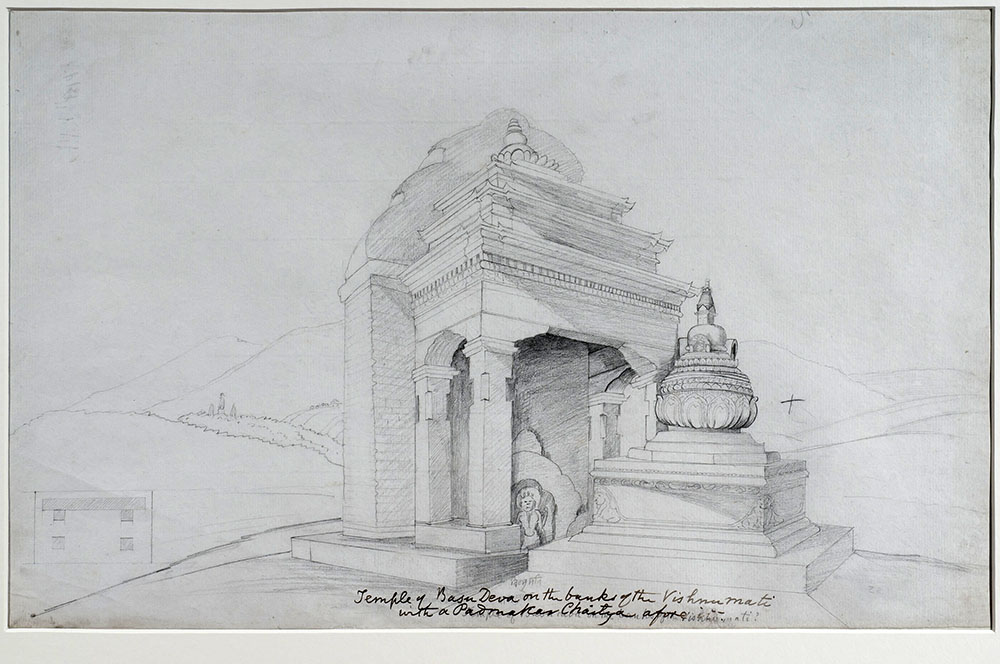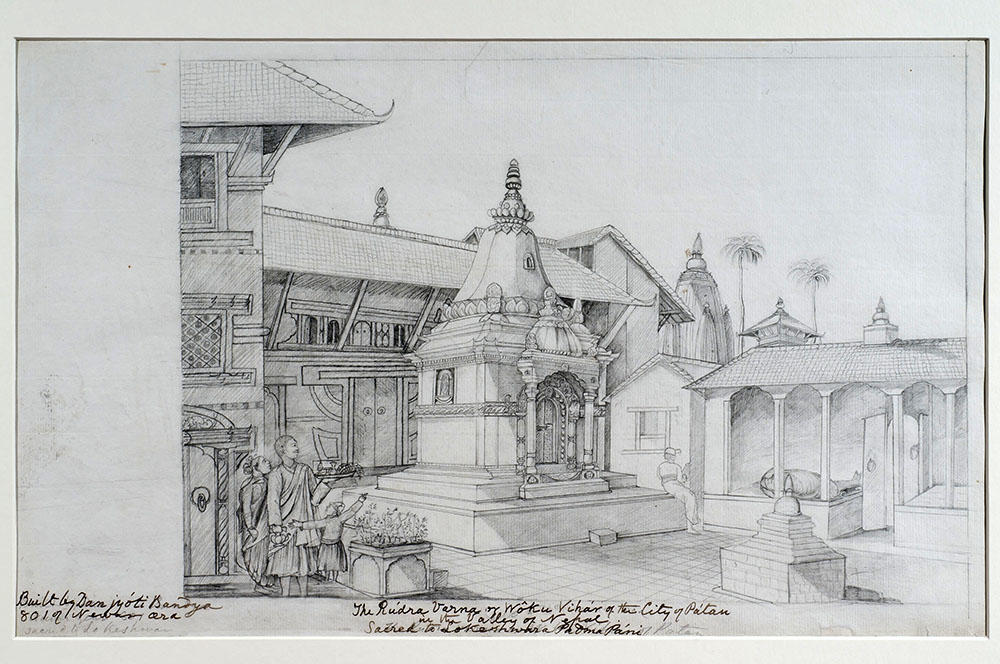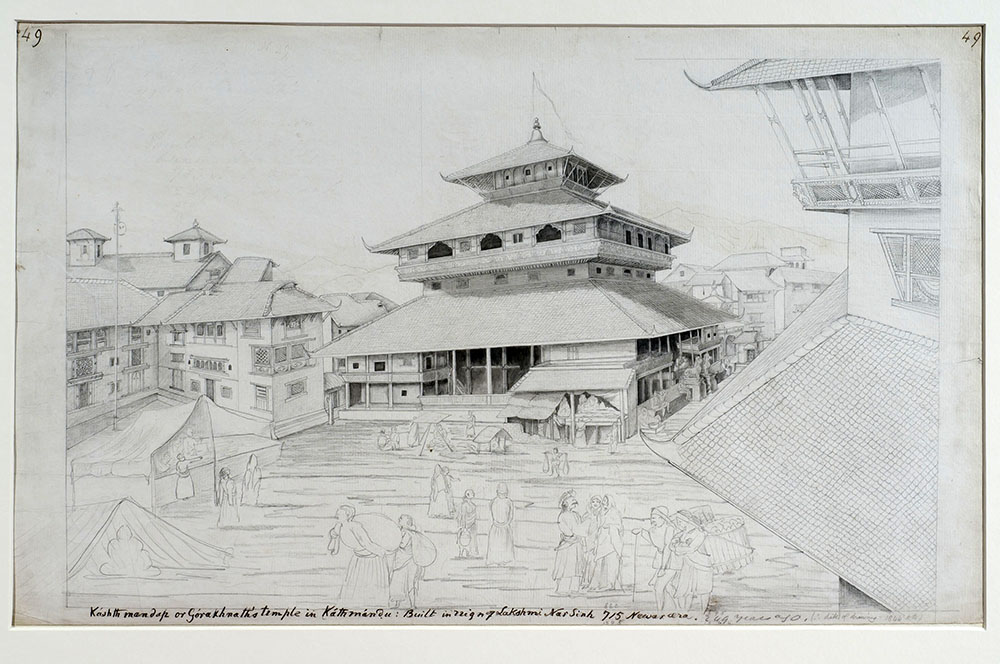Commemorating Nepal’s architecture
We are well aware of the earthquakes last year (2015) in Nepal and their devastating effect – the loss of life and the devastation of buildings. However, perhaps less well remembered is that on this very day, 15th January, in 1934 the Nepal Bihar region was also subjected to an earthquake. The epicentre was in east Nepal about 6 miles south of Everest. Approximately 4,500 people lost their lives and many buildings were devastated in the whole Kathmandu valley including about one-quarter of the houses in Kathmandu.
Many of the important buildings were restored after this earthquake, some to match their previous incarnations, others modified. Nepal is again having to go through a similar process. We are fortunate to have in the RAS Collections a set of over 50 drawings made of Nepali architecture. These were mainly created by Raj Man Singh and collected by Brian Houghton Hodgson (1800-1894). Hodgson was interested in many things in Nepal – including architecture, zoology and religion – and he employed Nepalese artists to record his interests. This was the only method to record things visually before photography became accessible to the ordinary person.
It is not known when the Hodgson collection came into the Society (it is one of my dreams as an archivist to find the letter that writes of the gift…) but in commemorating the 15th January 1934 earthquake, I thought I would share some of his record of the fabulous architecture that is part of Nepal’s history.




These drawings are a fantastic record of the the architecture of the area in that era. We are very fortunate to have them in our collections. So as you enjoy studying them please take time to remember earthquake victims, past and present. And for a first-hand account of the 1934 earthquake you can find an interview with a 102 year old Nepali man here.
